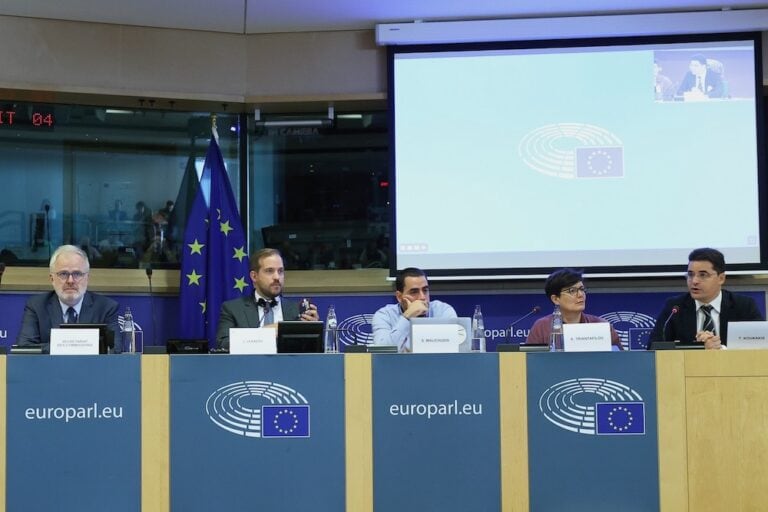(IFJ/IFEX) – The following is a media release by the European Federation of Journalists, an IFJ regional organisation: European Journalists Protest Over Violation of Rights in Northern Cyprus The European Federation of Journalists, which represents more than 200,000 journalists throughout Europe, today voiced its strong support for Cypriot and Spanish journalists after police evicted a […]
(IFJ/IFEX) – The following is a media release by the European Federation of Journalists, an IFJ regional organisation:
European Journalists Protest Over Violation of Rights in Northern Cyprus
The European Federation of Journalists, which represents more than 200,000 journalists throughout Europe, today voiced its strong support for Cypriot and Spanish journalists after police evicted a group of them from the Turkish occupied part of Nicosia.
On Monday, a group of Spanish journalists, taking part in a European Union supported seminar, were kicked out of the area by Turkish Cypriot police who disrupted their meeting.
The group had passed the green line officially in order to meet non-governmental organisations and Turkish Cypriot journalists.
The meeting had just started when police showed up and asked the group to leave. They threatened to use force if they did not leave voluntarily.
“Once again we see the hard-faced attitude of the Ralf Denktash administration,” said Gustl Glattfelder, EFJ Chairman. “This regime has no interest in press freedom or the free flow of information. This hostile action is a flagrant violation of internationally recognized fundamental rights.”
The European Federation of Journalists is demanding that the Turkish Government rein in the Denktash regime “to prove that they are serious about press rights and freedoms,” and the seriousness of its application to join the European Union.
“This continued harassment and intimidation of journalists going about their lawful business is completely unacceptable,” said Glattfelder. “It is time for Turkey to show that it means what it says when it talks about democracy and human rights in the region.”


